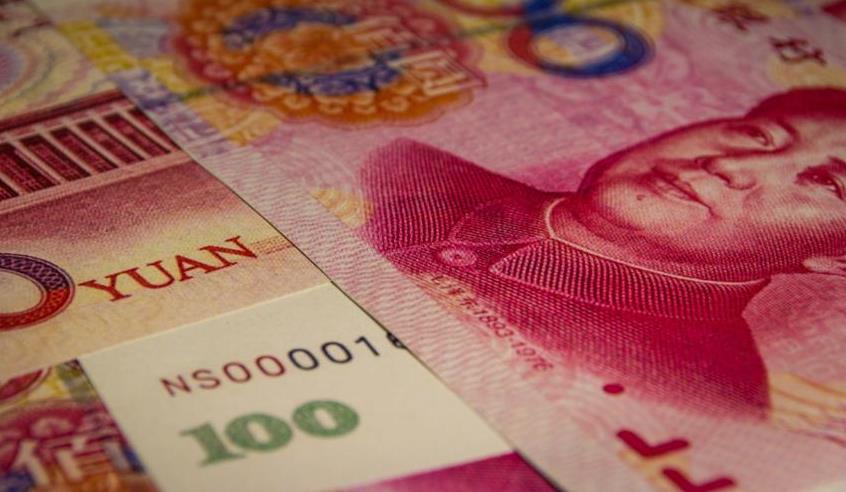
China is cracking down on money laundering, as it aims to ensure compliance with international standards. Recent measures greatly increase the level of reporting on overseas transactions by Chinese bank customers in order to collect data for analysis.
Starting August 21 and according to rules originally announced in June, banks are now required to report overseas spending via domestic Chinese bank accounts of over 1,000 RMB (about $150 USD).
Domestic bank card withdrawals over that amount are also to be monitored. Unionpay card users are permitted to withdraw up to 10,000 RMB (about $1,500 USD) per day, per card. The reporting measures do not change withdrawal and transaction limits, but may flag transactions that are deemed suspicious.
Previous decrees
The reason for the reporting is to collect information on these transactions for later analysis, in order to separate ordinary transactions from unusual transactions. Officials are particularly interested in tracking repeated transactions over this amount, which may indicate the presence of money laundering. This is related to the crackdown on capital flight, as the circumvention of capital controls may also be flagged for money laundering investigation in China.
Previous reporting thresholds were higher. The Number 3 Decree, starting July 1, required any cross-border transfers over 200,000 RMB (about $30,000 USD) be reported. And banks were to report any domestic cash deposits, withdrawals or transfers of 50,000 RMB (about $7,500) or more to the Anti-Money Laundering Monitoring and Analysis Center.
The Number 3 Decree also required banks to enhance their transaction monitoring effectiveness and to file a suspicious transaction report when a transaction is suspected of being related to money laundering or terrorism.
The need for tighter measures
Money laundering presents a challenge to Chinese regulators, as they try to combat criminal activity. Laundering through Chinese banks may occur when funds are used to pay for fake transactions or deposited in banks, to be withdrawn elsewhere. This can be used by criminals laundering proceeds from smuggling or exploitative labor practices; non-criminals who simply wish to make a large overseas purchases, such as real estate, may be flagged for money laundering investigation.
Surprisingly, even the largest four Chinese banks have been embroiled in accusations of money laundering. As a case in point, in 2015, employees at the Bank of China were accused of money laundering using many small transfers through its branch in Milan. The Bank of China settled the case in February of this year for a 600,000 euro fine, but said "in a statement it had not committed any crime and was not admitting guilt by agreeing to pay the fine," according to Reuters. Four employees at the Bank of China branch were given a two-year prison sentence for failing to report the illegal transfers.
In 2016, bank managers at a Madrid branch of ICBC were arrested for illegally transferring income from Spain to China, over 1.2 billion euros. The managers had allegedly wired cash from Chinese criminal groups in Spain to accounts in China. Results of this ongoing investigation may result in fines if ICBC is found negligent in enforcing anti-money laundering regulations. At this point, none of the suspects has been charged. A spokesperson told Business Insider that "the case file was sealed by the court so the bank could not comment on it. ICBC, he added, was a 'law-abiding company' and had cooperated with Spanish authorities."
More recently this month, China's State Administration of Foreign Exchange found nine banks violated foreign exchange transactions laws, as a result of fraud or insufficient internal controls, and penalized them. Seven of these banks helped companies falsify trade documents to purchase foreign currency or failed to carry out due diligence, while the other two had been negligent or in violation of foreign exchange laws with regard to individuals.
Not only are formal banks involved, but shadow banks are as well. In 2016 alone, over 380 underground banks were uncovered, involving transactions of over 900 billion RMB (about $135 billion USD). Underground banks provide another avenue for money laundering as they are unregulated, allowing criminals to easily transfer money across borders though bank accounts established on both ends.
Complying with international standards
The new reporting requirements will help Chinese regulators to comply with international standards. China only internationalized its anti-money laundering regulations in 2007, and has been attempting to refine and enforce these since then.
In addition, in 2018, Chinese banks are to undergo evaluation of compliance with anti-money laundering standards set forth by the intergovernmental Financial Action Task Force, and efforts toward beefing up China’s anti-money laundering system to this end have been anticipated.
Changes in anti-money laundering regulations are necessary in order to ensure that China, like other countries, can continue to combat increasingly sophisticated money laundering practices. Although challenging, regulators have imposed new rules to properly implement its anti-money laundering law and to implement better practices, such as customer identification, large-value transactions reporting, suspicious transactions reporting, know-your-customer practices, and transaction record keeping.
Chinese officials will in all likelihood continue to uncover these illicit financial activities in both formal and underground banks, as regulatory practices undergo ongoing revision.
Nike


